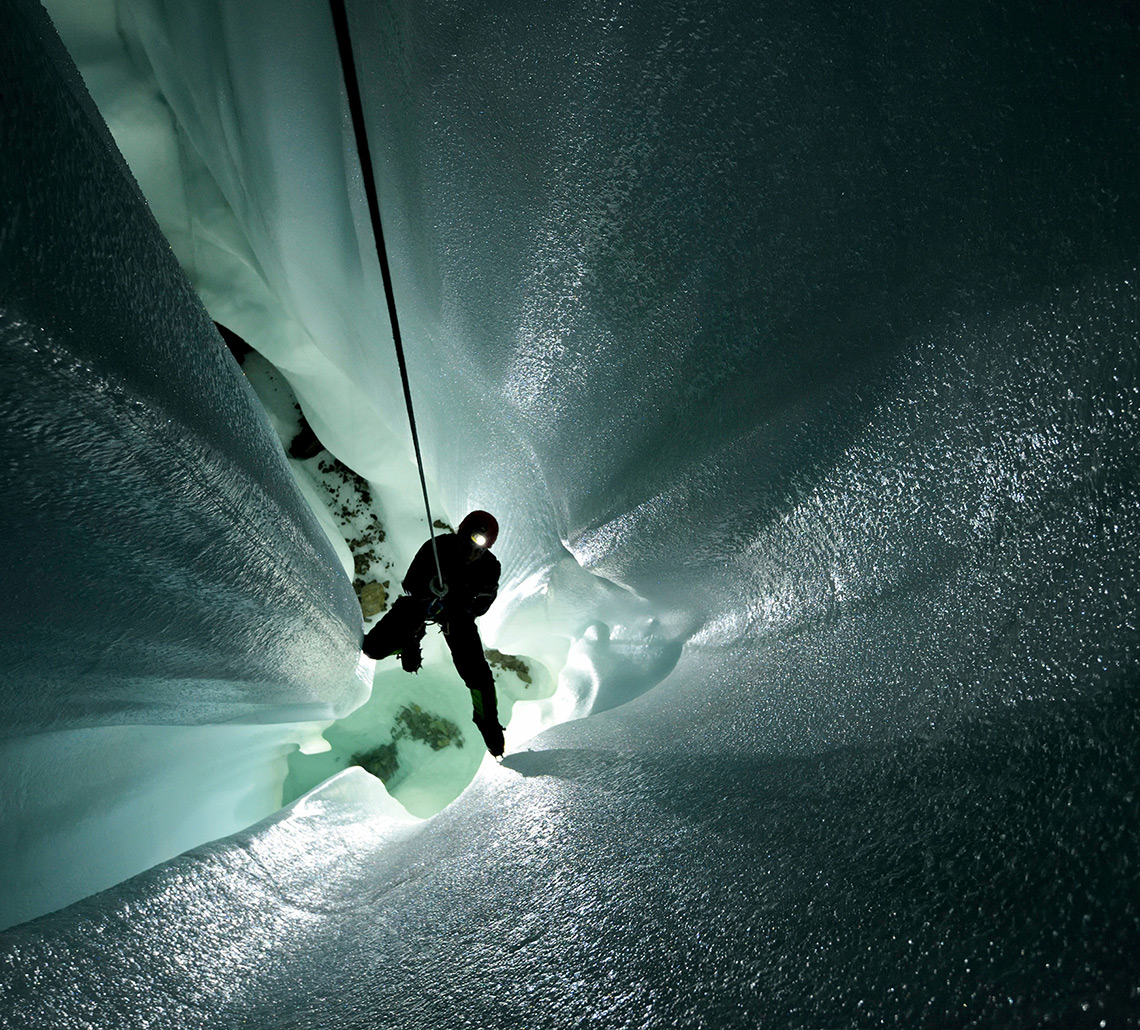Petzl
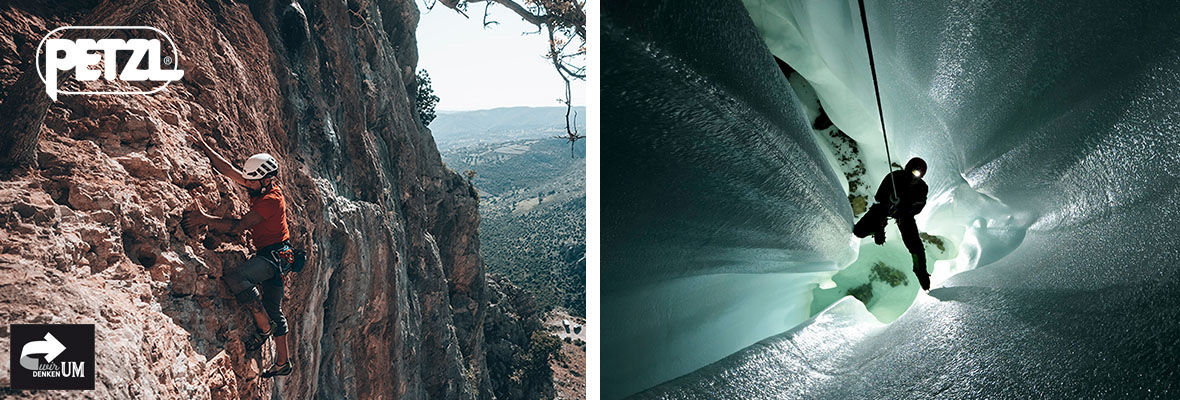
Petzl offers solutions by producing simple, robust, and aesthetical outdoor equipment. Throughout the years, the French outdoor company fundamentally changed the way of how to approach climbing and activities, for which you need illumination.
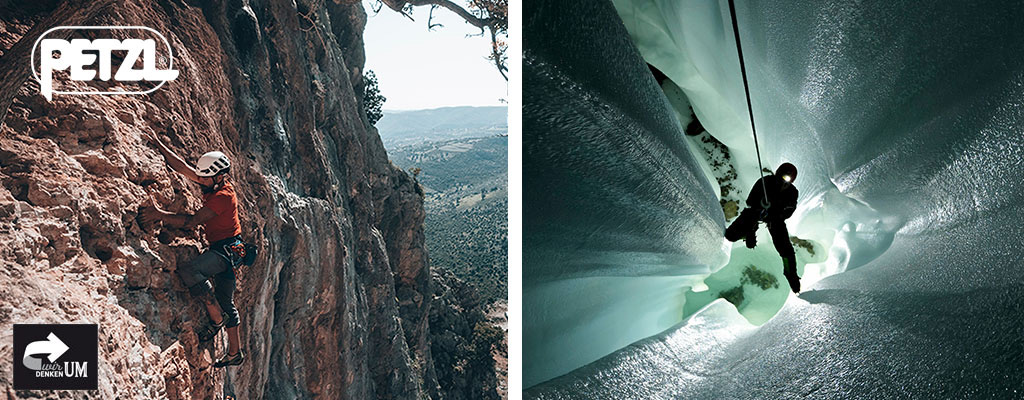
Petzl Highlights
- new
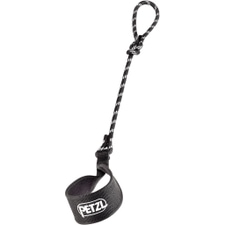 PetzlLinkin Leash13,95 €One size
PetzlLinkin Leash13,95 €One size - - 10 %new
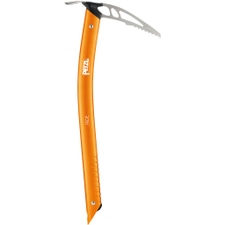 PetzlRide Ice Axe OrangeMSRP 99,95 €89,95 €One size
PetzlRide Ice Axe OrangeMSRP 99,95 €89,95 €One size
- - 15 %new
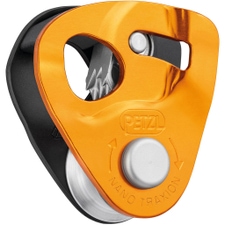 PetzlNano Traxion PulleyMSRP 84,95 €71,95 €One size
PetzlNano Traxion PulleyMSRP 84,95 €71,95 €One size
- - 10 %new
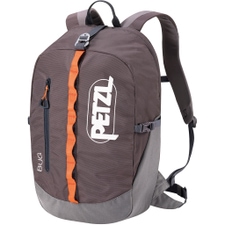 PetzlBug Backpack GrauMSRP 64,95 €58,45 €One size
PetzlBug Backpack GrauMSRP 64,95 €58,45 €One size - new
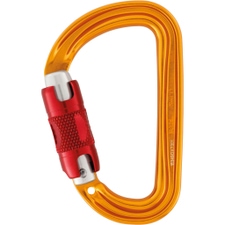 PetzlSm'D Twist Lock Special Carabiner Gelb20,50 €One size
PetzlSm'D Twist Lock Special Carabiner Gelb20,50 €One size
- - 4 %new
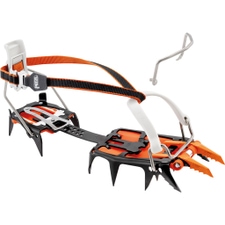 PetzlLynx Leverlock Universal CramponsMSRP 229,95 €219,95 €One size
PetzlLynx Leverlock Universal CramponsMSRP 229,95 €219,95 €One size
- new
 PetzlAnneau 60cm 16mm Sling Gelb5,95 €Basic price: 9.92 € / MeterOne size
PetzlAnneau 60cm 16mm Sling Gelb5,95 €Basic price: 9.92 € / MeterOne size - - 11 %new
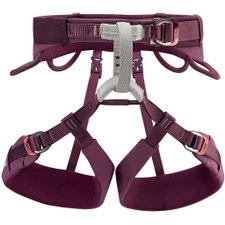 PetzlLuna Harness Violet WomenMSRP 89,95 €79,95 €Available Sizes:XSSML
PetzlLuna Harness Violet WomenMSRP 89,95 €79,95 €Available Sizes:XSSML - new
 PetzlCord Tec Ersatz-Reepschnur Crampon Accessories White15,95 €One size
PetzlCord Tec Ersatz-Reepschnur Crampon Accessories White15,95 €One size - - 8 %new
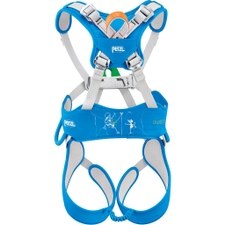 PetzlOuistiti Komplett Harness Blau KidsMSRP 64,95 €59,95 €One size
PetzlOuistiti Komplett Harness Blau KidsMSRP 64,95 €59,95 €One size - - 17 %new
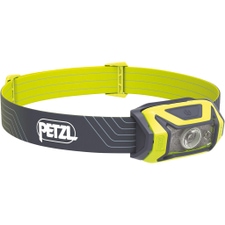 PetzlTikka Core Headlamp YellowMSRP 59,95 €49,95 €One size
PetzlTikka Core Headlamp YellowMSRP 59,95 €49,95 €One size - - 14 %new
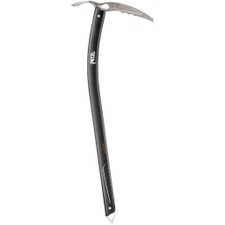 PetzlSummit Ice AxeMSRP 139,95 €119,95 €Available Sizes:525966
PetzlSummit Ice AxeMSRP 139,95 €119,95 €Available Sizes:525966
- - 20 %new
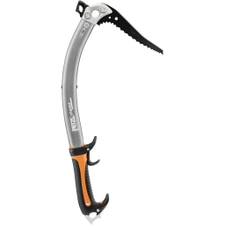 PetzlQuark 50 cm Hammer Ice Axe GrauMSRP 249,95 €199,95 €One size
PetzlQuark 50 cm Hammer Ice Axe GrauMSRP 249,95 €199,95 €One size
- new
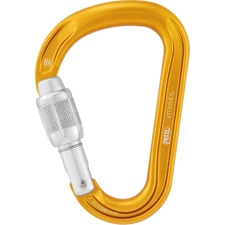 PetzlAttache Screwgate Carabiner Yellow17,95 €One size
PetzlAttache Screwgate Carabiner Yellow17,95 €One size
- - 10 %new
 PetzlE + Lite Headlamp Weiß / SchwarzMSRP 29,95 €26,95 €One size
PetzlE + Lite Headlamp Weiß / SchwarzMSRP 29,95 €26,95 €One size - new
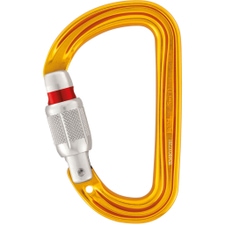 PetzlSm'D Screwgate Carabiner Yellow17,50 €One size
PetzlSm'D Screwgate Carabiner Yellow17,50 €One size
- - 15 %new
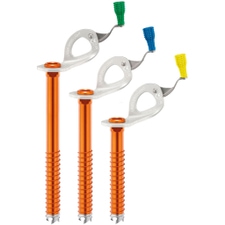 PetzlLaser Speed Light Ice Screw BlueMSRP 87,95 €74,95 €Available Sizes:131721
PetzlLaser Speed Light Ice Screw BlueMSRP 87,95 €74,95 €Available Sizes:131721
- - 13 %new
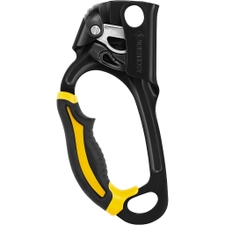 PetzlAscension Left Ascender SchwarzMSRP 62,95 €54,95 €One size
PetzlAscension Left Ascender SchwarzMSRP 62,95 €54,95 €One size
- - 8 %new
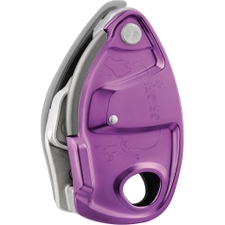 PetzlGrigri+ Belay Device ViolettMSRP 119,95 €109,95 €One size
PetzlGrigri+ Belay Device ViolettMSRP 119,95 €109,95 €One size
- - 13 %new
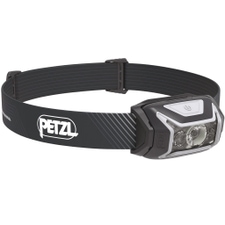 PetzlActik Core 600 Headlamp GrayMSRP 74,95 €64,95 €One size
PetzlActik Core 600 Headlamp GrayMSRP 74,95 €64,95 €One size
- - 17 %new
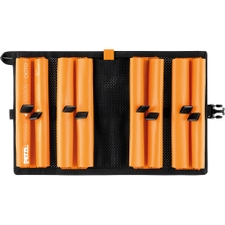 PetzlOcto Ice Screw Bag OrangeMSRP 29,95 €24,95 €One size
PetzlOcto Ice Screw Bag OrangeMSRP 29,95 €24,95 €One size - - 14 %new
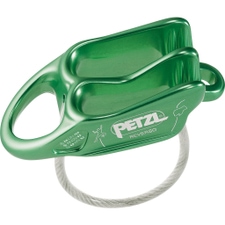 PetzlReverso Tube GrünMSRP 34,95 €29,95 €One size
PetzlReverso Tube GrünMSRP 34,95 €29,95 €One size
- - 17 %new
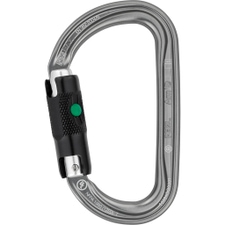 PetzlAm'D Ball-Lock Special CarabinerMSRP 23,95 €19,95 €One size
PetzlAm'D Ball-Lock Special CarabinerMSRP 23,95 €19,95 €One size
- new
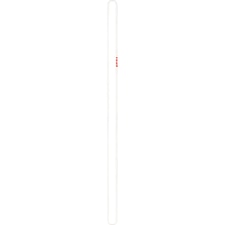 PetzlPur'Anneau 120 cm Dyneema Sling Weiß / Rot19,95 €Basic price: 16.63 € / MeterOne size
PetzlPur'Anneau 120 cm Dyneema Sling Weiß / Rot19,95 €Basic price: 16.63 € / MeterOne size
- new
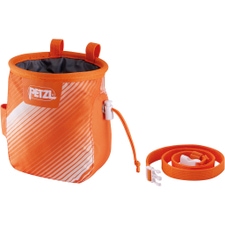 PetzlSaka Chalk Bag Orange19,95 €One size
PetzlSaka Chalk Bag Orange19,95 €One size
- - 20 %new
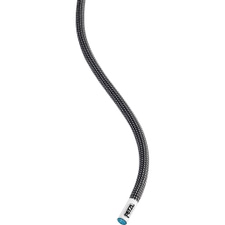 PetzlPaso Guide 7,7 mm 60 m Rope GrayMSRP 187,50 €149,95 €Basic price: 2.5 € / MeterOne size
PetzlPaso Guide 7,7 mm 60 m Rope GrayMSRP 187,50 €149,95 €Basic price: 2.5 € / MeterOne size
- - 8 %new
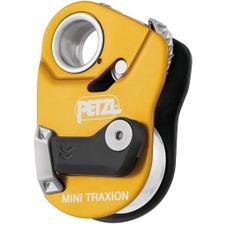 PetzlMini Traxion PullyMSRP 113,95 €104,95 €One size
PetzlMini Traxion PullyMSRP 113,95 €104,95 €One size - - 11 %new
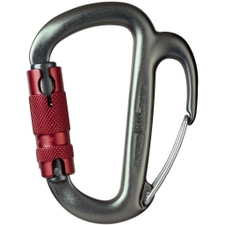 PetzlFreino Special Carabiner AnthraciteMSRP 44,95 €39,95 €One size
PetzlFreino Special Carabiner AnthraciteMSRP 44,95 €39,95 €One size
- - 25 %new
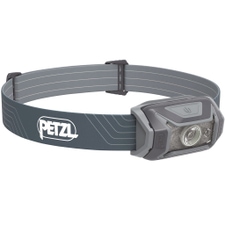 PetzlTikka Core Headlamp GrayMSRP 59,95 €44,95 €One size
PetzlTikka Core Headlamp GrayMSRP 59,95 €44,95 €One size - new
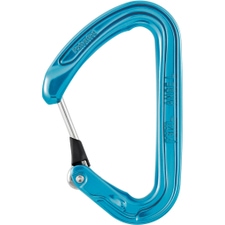 PetzlAnge L Carabiner Blau14,95 €One size
PetzlAnge L Carabiner Blau14,95 €One size
- - 16 %new
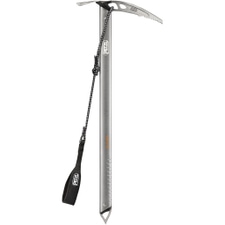 PetzlGlacier Ice Axe SilverMSRP 94,95 €79,95 €Available Sizes:606875
PetzlGlacier Ice Axe SilverMSRP 94,95 €79,95 €Available Sizes:606875
- - 20 %new
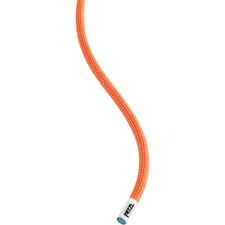 PetzlPaso Guide 7,7 mm 60 m Rope OrangeMSRP 187,50 €149,95 €Basic price: 2.5 € / MeterOne size
PetzlPaso Guide 7,7 mm 60 m Rope OrangeMSRP 187,50 €149,95 €Basic price: 2.5 € / MeterOne size
- - 9 %new
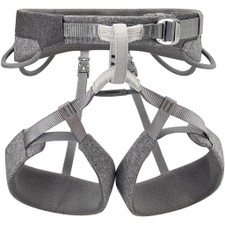 PetzlSama Harness GrayMSRP 79,95 €72,95 €Available Sizes:SMLXL
PetzlSama Harness GrayMSRP 79,95 €72,95 €Available Sizes:SMLXL - - 10 %new
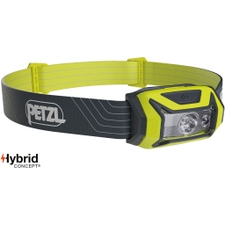 PetzlTikka 350 Headlamp YellowMSRP 34,95 €31,45 €One size
PetzlTikka 350 Headlamp YellowMSRP 34,95 €31,45 €One size - new
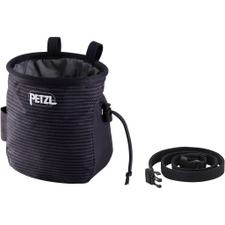 PetzlSaka Chalk Bag Stripes19,95 €One size
PetzlSaka Chalk Bag Stripes19,95 €One size
- - 18 %new
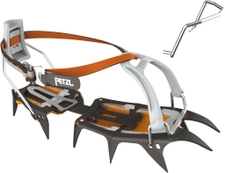 PetzlVasak Leverlock Universel Crampons OrangeMSRP 169,95 €139,95 €One size
PetzlVasak Leverlock Universel Crampons OrangeMSRP 169,95 €139,95 €One size
- - 9 %new
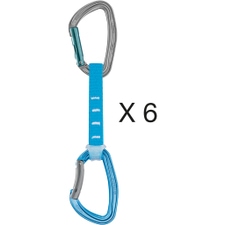 PetzlDjinn Axess 11 cm 6 pcs Quickdraw TürkisMSRP 109,95 €99,95 €Available Sizes:11
PetzlDjinn Axess 11 cm 6 pcs Quickdraw TürkisMSRP 109,95 €99,95 €Available Sizes:11
- - 12 %new
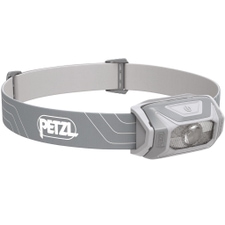 PetzlTikkina 300 Headlamp GrayMSRP 24,95 €21,95 €One size
PetzlTikkina 300 Headlamp GrayMSRP 24,95 €21,95 €One size - - 21 %new
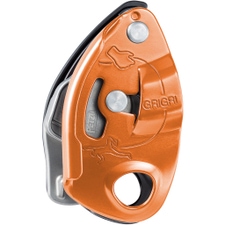 PetzlGrigri Belay Device Rot / OrangeMSRP 94,95 €74,95 €One size
PetzlGrigri Belay Device Rot / OrangeMSRP 94,95 €74,95 €One size
- new
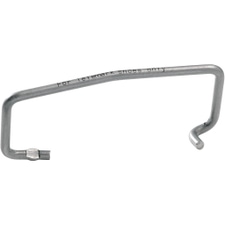 PetzlFil Frontbügel Telemark Accessories29,95 €One size
PetzlFil Frontbügel Telemark Accessories29,95 €One size
- - 11 %new
 PetzlMeteora Climbing Helmet Weiß / Violett WomenMSRP 89,95 €79,95 €One size
PetzlMeteora Climbing Helmet Weiß / Violett WomenMSRP 89,95 €79,95 €One size - - 17 %new
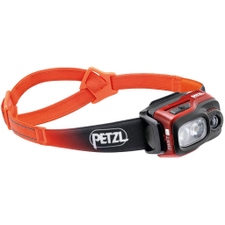 PetzlSwift RL 1100 Headlamp OrangeMSRP 119,95 €99,95 €One size
PetzlSwift RL 1100 Headlamp OrangeMSRP 119,95 €99,95 €One size - new
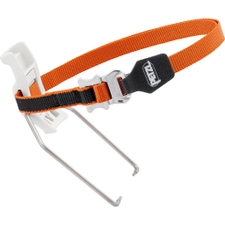 PetzlBack Lever Heel Bails Crampons Accessories34,95 €One size
PetzlBack Lever Heel Bails Crampons Accessories34,95 €One size
- - 12 %new
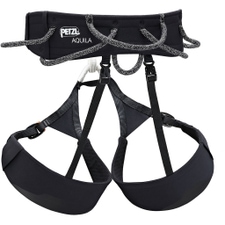 PetzlAquila Harness BlackMSRP 124,95 €109,95 €Available Sizes:SMLXL
PetzlAquila Harness BlackMSRP 124,95 €109,95 €Available Sizes:SMLXL - - 20 %new
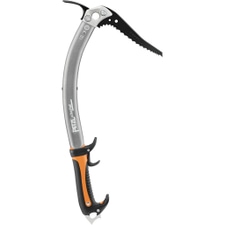 PetzlQuark 50 cm Shovel Ice Axe GrauMSRP 249,95 €199,95 €One size
PetzlQuark 50 cm Shovel Ice Axe GrauMSRP 249,95 €199,95 €One size
- - 11 %new
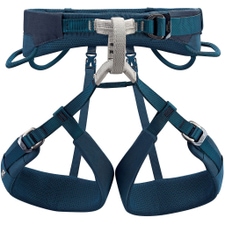 PetzlAdjama Harness Blue MenMSRP 89,95 €79,95 €Available Sizes:SMLXL
PetzlAdjama Harness Blue MenMSRP 89,95 €79,95 €Available Sizes:SMLXL - new
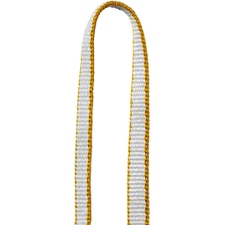 PetzlSt'Anneau Dyneema 12 mm Sling Weiß12,50 €Available Sizes:60120
PetzlSt'Anneau Dyneema 12 mm Sling Weiß12,50 €Available Sizes:60120
- - 15 %new
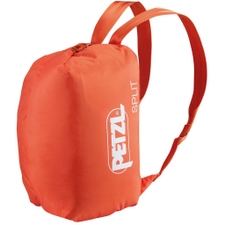 PetzlSplit Ropebag Rot / OrangeMSRP 46,95 €39,90 €One size
PetzlSplit Ropebag Rot / OrangeMSRP 46,95 €39,90 €One size - - 9 %new
 PetzlRad System Rescue Set OrangeMSRP 329,95 €299,95 €One size
PetzlRad System Rescue Set OrangeMSRP 329,95 €299,95 €One size
- - 10 %new
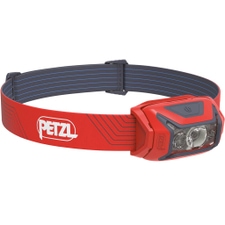 PetzlActik 450 Headlamp RedMSRP 49,95 €44,95 €One size
PetzlActik 450 Headlamp RedMSRP 49,95 €44,95 €One size
- new
 PetzlCaritool EVO Climbing Accessories14,95 €One size
PetzlCaritool EVO Climbing Accessories14,95 €One size
- - 12 %new
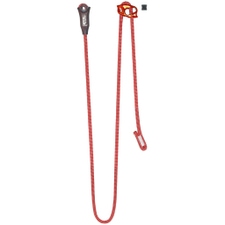 PetzlDual Connect Vario Belay Station SlingMSRP 59,95 €52,95 €Basic price: 29.42 € / MeterOne size
PetzlDual Connect Vario Belay Station SlingMSRP 59,95 €52,95 €Basic price: 29.42 € / MeterOne size - - 21 %new
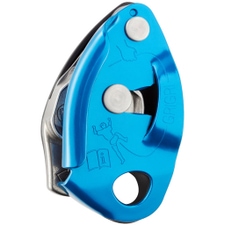 PetzlGrigri Belay Device BlauMSRP 94,95 €74,95 €One size
PetzlGrigri Belay Device BlauMSRP 94,95 €74,95 €One size
- - 8 %new
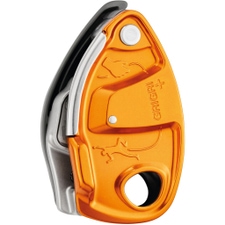 PetzlGrigri+ Belay Device OrangeMSRP 119,95 €109,95 €One size
PetzlGrigri+ Belay Device OrangeMSRP 119,95 €109,95 €One size
- - 21 %new
 PetzlOscillante PulleyMSRP 18,95 €14,95 €One size
PetzlOscillante PulleyMSRP 18,95 €14,95 €One size
- - 10 %new
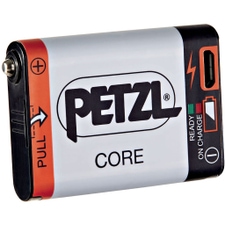 PetzlAccu Core HeadlampMSRP 29,95 €26,95 €One size
PetzlAccu Core HeadlampMSRP 29,95 €26,95 €One size - new
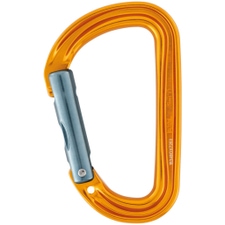 PetzlSm'D Wall Carabiner Orange11,95 €One size
PetzlSm'D Wall Carabiner Orange11,95 €One size
- new
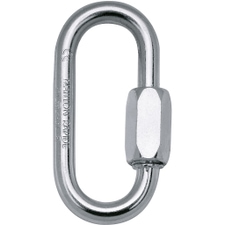 PetzlMaillon Rapide 7mm P15 Locking Ring Carabiner Grau5,20 €One size
PetzlMaillon Rapide 7mm P15 Locking Ring Carabiner Grau5,20 €One size
- - 10 %new
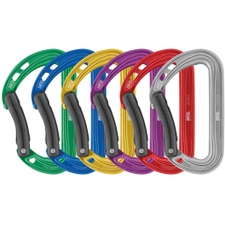 PetzlSpirit 6er-Pack Carabiners Blue/gray/violet/green/ Red/yellowMSRP 69,95 €62,95 €One size
PetzlSpirit 6er-Pack Carabiners Blue/gray/violet/green/ Red/yellowMSRP 69,95 €62,95 €One size
- - 8 %new
 PetzlSpirit QuickdrawMSRP 23,95 €21,95 €Available Sizes:111725
PetzlSpirit QuickdrawMSRP 23,95 €21,95 €Available Sizes:111725
- - 12 %new
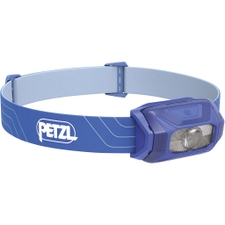 PetzlTikkina 300 Headlamp BlueMSRP 24,95 €21,95 €One size
PetzlTikkina 300 Headlamp BlueMSRP 24,95 €21,95 €One size - - 11 %new
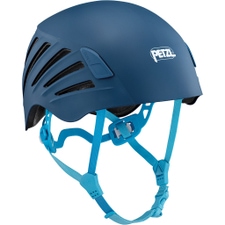 PetzlBorea Climbing Helmet Navy Blue WomenMSRP 64,95 €57,95 €Available Sizes:S/M
PetzlBorea Climbing Helmet Navy Blue WomenMSRP 64,95 €57,95 €Available Sizes:S/M - - 17 %new
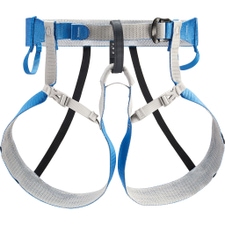 PetzlTour Harness BlueMSRP 59,95 €49,95 €Available Sizes:LXLM/L S/M
PetzlTour Harness BlueMSRP 59,95 €49,95 €Available Sizes:LXLM/L S/M - - 14 %new
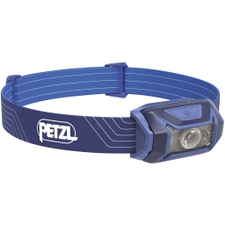 PetzlTikka 350 Headlamp BlueMSRP 34,95 €29,95 €One size
PetzlTikka 350 Headlamp BlueMSRP 34,95 €29,95 €One size - new
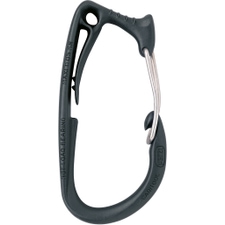 PetzlCaritool Gearholder Climbing Accessories Black8,95 €One size
PetzlCaritool Gearholder Climbing Accessories Black8,95 €One size
- - 29 %new
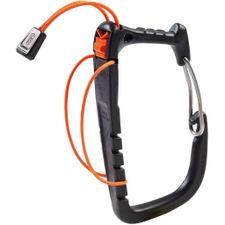 PetzlCaritool EVO Climbing AccessoriesMSRP 13,95 €9,95 €One size
PetzlCaritool EVO Climbing AccessoriesMSRP 13,95 €9,95 €One size
- - 21 %new
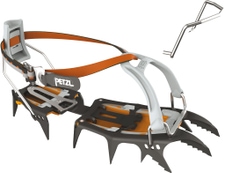 PetzlSarken Leverlock Universel Crampons OrangeMSRP 189,95 €149,95 €One size
PetzlSarken Leverlock Universel Crampons OrangeMSRP 189,95 €149,95 €One size
- - 10 %new
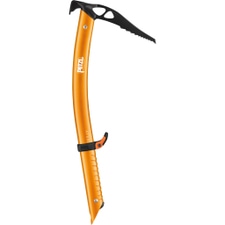 PetzlGully 45 cm Hammer Ice Axe OrangeMSRP 144,95 €129,95 €One size
PetzlGully 45 cm Hammer Ice Axe OrangeMSRP 144,95 €129,95 €One size
- - 7 %new
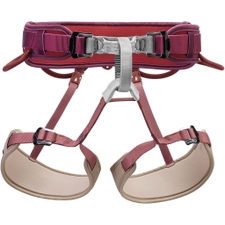 PetzlCorax Harness Dark RedMSRP 69,95 €64,95 €Available Sizes:12
PetzlCorax Harness Dark RedMSRP 69,95 €64,95 €Available Sizes:12 - - 10 %new
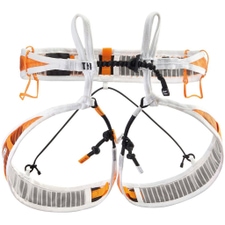 PetzlFly Harness Orange / WhiteMSRP 99,95 €89,95 €Available Sizes:SML
PetzlFly Harness Orange / WhiteMSRP 99,95 €89,95 €Available Sizes:SML - - 13 %new
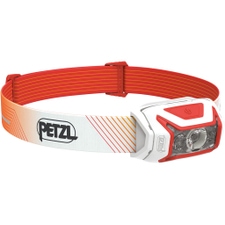 PetzlActik Core 600 Headlamp RedMSRP 74,95 €64,95 €One size
PetzlActik Core 600 Headlamp RedMSRP 74,95 €64,95 €One size
- - 11 %new
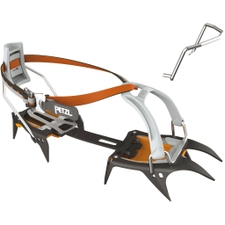 PetzlIrvis Leverlock Universel Crampons OrangeMSRP 139,95 €124,95 €One size
PetzlIrvis Leverlock Universel Crampons OrangeMSRP 139,95 €124,95 €One size



Why is Petzl a WIR DENKEN UM brand?
Petzl, a family-owned company, understands sustainability to mean continuous evaluation and improvement to minimize environmental impact. As a WIR DENKEN UM brand, Petzl stands out in the following ways:
- The company is committed to accountability throughout the supply chain and is dedicated to responsible purchasing
- It is aware of the impact of its operations on the environment and is working to reduce its own footprint by 50 % by 2030
- Petzl promotes fair working conditions and supports suppliers to improve their CSR practices
Petzl: A company that is committed
"More than ever before, we are aware that our actions and products have a lasting impact on our environment and have a decisive influence on our future and that of our children. We are committed to sustainably reducing the impact of our actions through our inventions and innovations," says CSR Director Sébastien Petzl. Petzl has set out to reduce the environmental footprint of its operations by 50 % by 2030 compared to a 2019 baseline. To this end, Petzl aims, for example, to develop products with lower CO2 emissions, shorten the transport distances of goods and reduce the energy consumption of Petzl lamps. The French-based company also plans to significantly conserve resources and avoid waste. Petzl plans to avoid single-use plastic in all packaging and in factories, for 50 percent of all cardboard boxes and pallets to be reused and for 80 percent of all waste to be recycled by 2025.
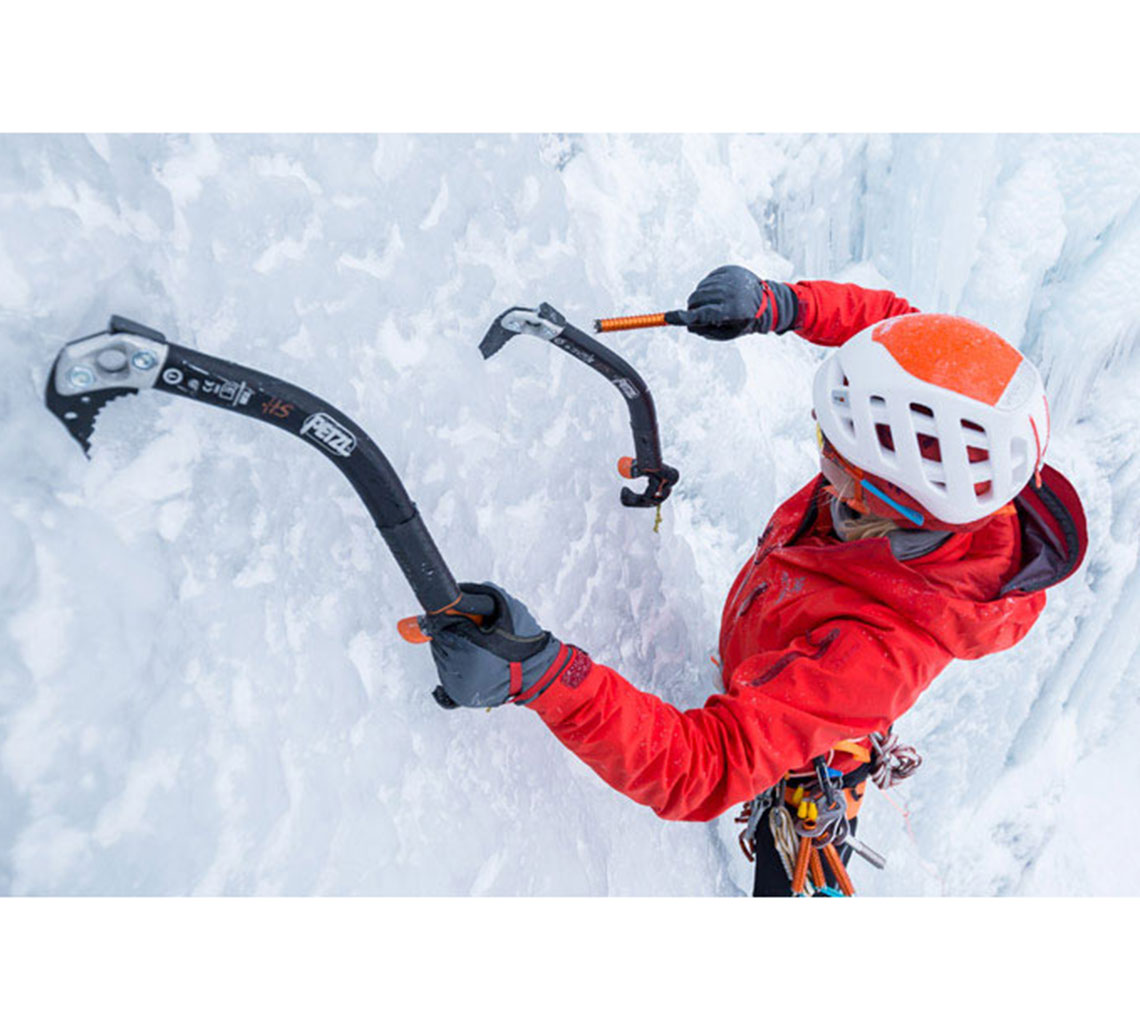
ACCESS THE INACCESSIBLE with Petzl
Throughout the whole process, from development to marketability, Petzl pursues the big goal of making the seemingly impossible possible. The company always challenges the technological and economic limits of the possible in order to produce gear, which sets new standards. Petzl basically consists of two main sectors: While they produce outdoor equipment, e.g. for mountaineering, under the sports banner, they also focus on the working world by manufacturing equipment in such realms like safety at work and rescue under the professional banner. Petzl´s innovative headlamps, carabiners, crampons and ascenders etc. are nowadays sold in more than 50 countries via a specialty retailer network.
Petzl´s success story really kicked off in the late 60s, early 70s. During this time, the first products were introduced into the market. Yet, Petzl´s journey actually started a lot earlier than that, namely in 1936. The speleologist Fernand Petzl had discovered cave climbing, however, there was barely any gear for this activity. This is why Petzl started to develop his own climbing equipment. Fernand Petzl, who passed away in 2003 and whose son Paul, today, is the president of the family-run company, laid the foundation in the upcoming decades to develop and produce solutions for the rappelling, moving, securing, and ascending in darkness. In 1968, he began to market the first ascenders and descenders (BASIC, SIMPLE) under the name of Fernand Petzl.
And the newly founded company didn´t waste any time at all. In 1977, Petzl presented the first harnesses before, in 1990, the French developed the first products for commercial retailers. Only one year later, a true classic was born: The GRIGRI, the first belaying device with stop-support, which is, to this day, immensely popular. In 1998, Petzl presented the TIBLOC, an extremely compact ascender for the ascent on the rope. Two years later came TIKKA, the first LED-headlamp. That same year, Petzl bought the Charlet Moser corporation and, thus, expanded into the realm of ice tools and crampons. In 2006, Petzl supplied the New York Fire Department with the personal rescue system EXO. In 2016, GRIGRI + was born, the continuation of the belying device classic.
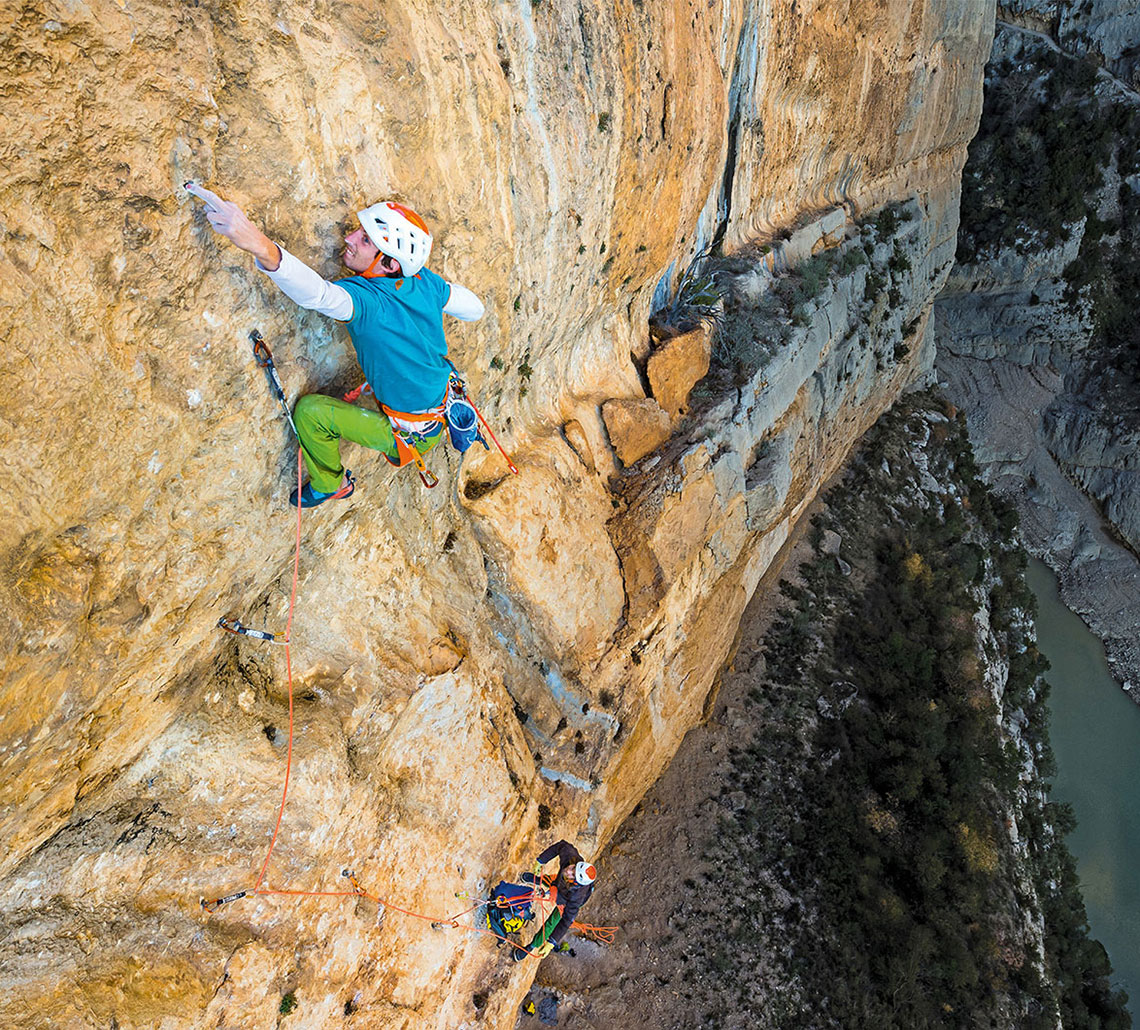
Petzl: SAFETY, RELIABILITY, QUALITY
Reliability, ergonomics, comfort, and efficiency are key components of Petzl´s philosophy. In order to accomplish all of this, Petzl unites all kinds of experts of such diverse realms like mechanics, electronics, optics, textile, and data processing in their developmental factory in Crolles. Already in the planning-and-prototype-stage, Petzl especially watches the reliability of the developing equipment and the safety of the user by laying a special eye on the risks involved. Also, there are special test laboratories in Crolles, where lamps and climbing items are tested. The tests, which are conducted there, range from dynamic crash tests, luminous intensities, and shock resistance to the run time of the lamps. These tests are oftentimes more complex than mandated. After all, Petzl doesn´t back down from their goal to accomplish ultimate reliability and safety. Additional practical tests further challenge the ergonomics and reliability of the products.
Petzl produces in Crolles, Eybens, and Rotherens, France, and in Rawang, Malaysia. Petzl´s strategy is that of long-term partnerships with the most important European and Asian suppliers, who closely work with Petzl´s buying agents and quality managers. Petzl watches each and every production step of the products, so, their reliability and quality can live up to the extraordinarily high Petzl expectations. However, Petzl´s responsibility doesn´t stop inside the working world. Established in 2006, the Petzl Foundation supports environmental and research-oriented projects concerning climate protection and sustainability.
